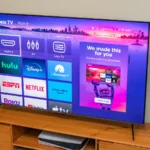Real estate tokenization has emerged as a groundbreaking innovation, leveraging blockchain technology to bring efficiency, security, and accessibility to property investment. At the core of this transformation are smart contracts, which automate and enforce agreements, eliminating intermediaries and reducing costs. This blog explores the role of smart contracts in real estate tokenization and how they are reshaping the property market.
What Are Smart Contracts?
Smart contracts are self-executing contracts with predefined terms written into code. These contracts run on blockchain networks and automatically execute actions when specific conditions are met. By leveraging smart contracts, real estate transactions become more transparent, secure, and efficient.
How Smart Contracts Enhance Real Estate Tokenization
1. Automation of Transactions
Smart contracts remove the need for intermediaries such as brokers, lawyers, and banks. Once conditions are met, transactions execute automatically, reducing paperwork, delays, and costs.
2. Improved Security and Transparency
Blockchain-based smart contracts are immutable and tamper-proof, ensuring that transaction data remains secure and verifiable by all parties involved. This transparency builds trust among investors and property owners.
3. Fractional Ownership Made Easy
With smart contracts, real estate assets can be tokenized into smaller, divisible units. This enables fractional ownership, allowing investors to buy and sell property shares effortlessly, increasing accessibility to the market.
4. Efficient Compliance and Regulations
Smart contracts can be programmed to enforce regulatory compliance automatically. They can include identity verification (KYC/AML), tax calculations, and jurisdiction-specific legal requirements, reducing the risk of fraud and legal complications.
5. Instant Settlement and Liquidity
Traditional real estate transactions can take weeks or even months to settle. Smart contracts enable instant settlement, making property investments more liquid and attractive to a broader range of investors.
Use Cases of Smart Contracts in Real Estate Tokenization
1. Property Sales and Transfers
Smart contracts streamline the buying and selling process by executing property transfers upon meeting contractual conditions, ensuring instant ownership changes.
2. Rental and Lease Agreements
Smart contracts can automate rent collection, lease management, and dispute resolution, reducing the need for manual intervention.
3. Crowdfunding and Real Estate Investment Trusts (REITs)
Real estate crowdfunding platforms leverage smart contracts to distribute rental income, dividends, and investment returns to multiple investors transparently and efficiently.
4. Mortgage and Loan Agreements
Smart contracts can automate loan issuance, repayments, and foreclosure processes, minimizing paperwork and ensuring timely payments.
Challenges of Implementing Smart Contracts in Real Estate
Despite the numerous advantages, there are challenges in adopting smart contracts for real estate tokenization:
- Legal and Regulatory Hurdles: Different jurisdictions have varying laws regarding digital assets and blockchain transactions.
- Smart Contract Security Risks: Coding vulnerabilities can lead to hacks or unintended contract executions.
- Adoption Barriers: Traditional stakeholders may be resistant to change due to a lack of blockchain understanding and expertise.
Conclusion
Smart contracts play a crucial role in revolutionizing real estate tokenization, making transactions more efficient, secure, and accessible. While challenges exist, advancements in blockchain technology and regulatory frameworks will likely drive widespread adoption in the coming years. By leveraging smart contracts, investors and property owners can unlock new opportunities and reshape the future of real estate investment.
Real estate tokenization powered by smart contracts is no longer a futuristic concept—it is happening now, transforming how properties are bought, sold, and managed in a decentralized world.















































